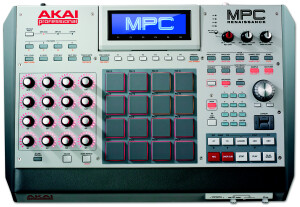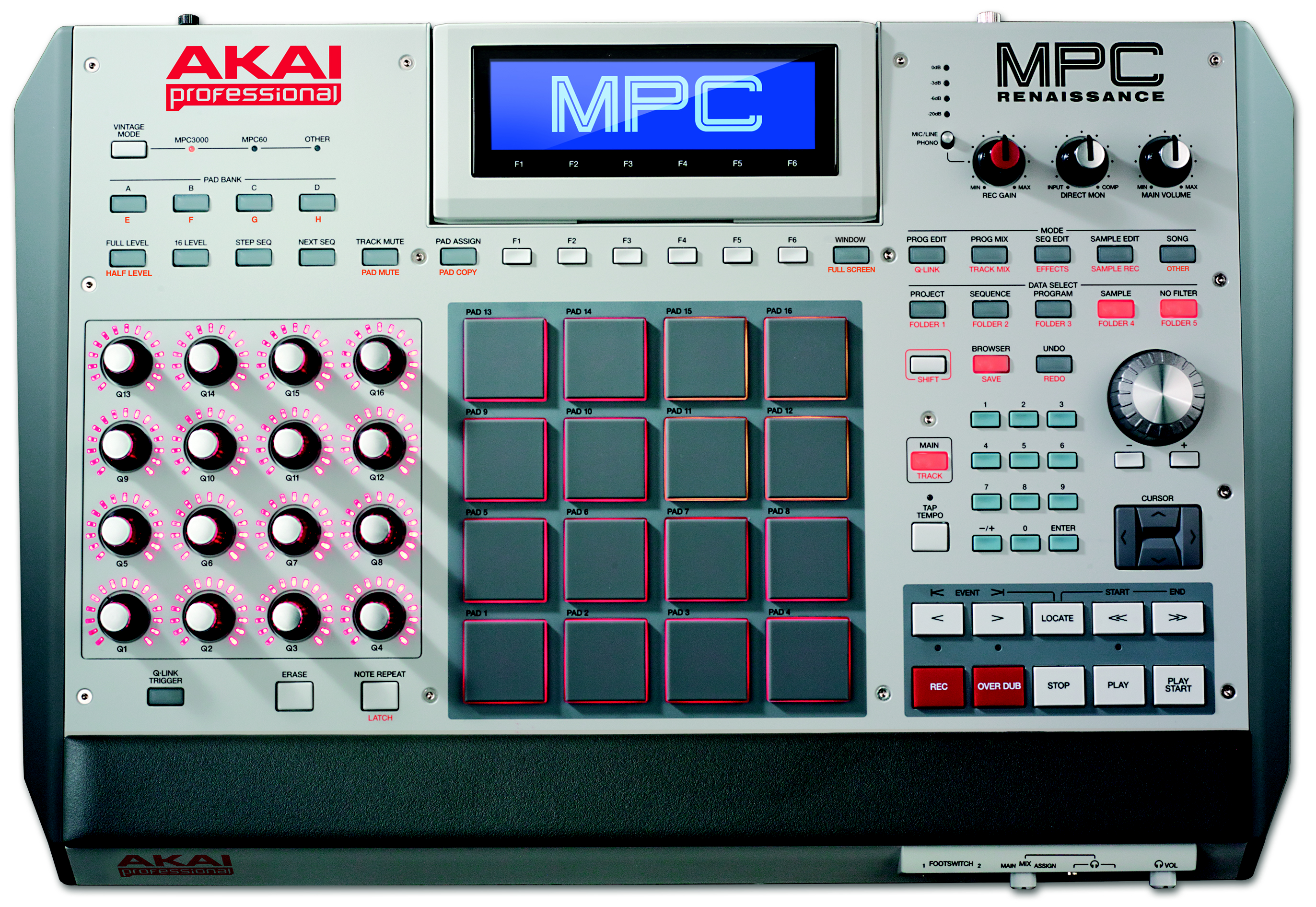Sujet 1.8.2 Dispo
- 17 réponses
- 6 participants
- 3 992 vues
- 6 followers
Franck Débine
la mise à jour 1.8.2 est dispo :
Version 1.8.2 (April 2015) New features
The Plugin Manager is a new way of managing your VST/Audio Unit instruments and insert effects with MPC (See Tools>Plugin manager).
View all scanned plugins in a detailed list
Filter the list by plugin format, type, and whether it was scanned
successfully or not.
Type in the search field to quickly refine what’s shown in the list.
Re-order the list by name, type, etc
Re-scan individual failed plugins (this is really useful when your plugins do
not scan because you’ve not got a copy protection key with you; at your leisure you can scan the plugins you want)
Akai Professional is continually updating and enhancing the MPC experience.
This document lists the new features, fixes and improvements made to your MPC software.
“Use” checkbox provides the ability to filter out plugins from the list so you can hide plugins you don’t want to use.
Favourite plugins option allows you to move your preferred plugins to a new section at the top of the new plugin dialog for rapid access.
You can also launch the plugin manager from the “new plugin” dialog (use the “cog” icon)
New sample loop types (see sample trim mode, or the pad parameters in program edit)
Off - no looping occurs.
Forward loop - is the existing MPC loop behaviour. When playback reaches
the “end” point, it resumes playing forwards from the “loop” point
Alternating loop - when playback reaches the “end” point, the sample will play backwards to the “loop” point, then forwards to the “end” point, and so on.
Reverse loop - when playback reaches the “end” point it will continually play backwards to the “loop” point from “end”
Sequence note duration recording enhancements (see Preferences>Sequencer>Truncate Duration).
Select To Sequence Length to truncate notes when they go beyond the length of the current sequence. When a sequence loops you can be sure that the note will never “play over” itself.
Select To Sequence End to truncate notes to the end of the current sequence. When the sequence loops round, the note will stop playing.
Select As Played to record events exactly as they were played. The note events may overlap as the sequence plays back.
Automation support for the pad offset and pad reverse parameters. You can now assign these parameters to Q—Links and record their changes in real time.
The Expansion Manager allows you to manage your installed expansion packs. (See Tools>Expansion Manager).
View a list of expansions installed into your MPC, along with their details.
The “Use” field allows you to hide expansions you don’t want to see in the expansion browser.
XPN-format expansions can be automatically uninstalled (select the XPN and press “Uninstall”)
Master tempo allows you to lock your MPC to a unified tempo, regardless of the current sequence’s tempo.
In MPC GUI, click the BPM sync field on the transport toolbar to engage “master tempo”. The toolbar displays “MST” when master tempo is engaged.
On the MPC LCD, select the “seq” field beside the sequence BPM, and press +/- to select “mst”.
Real-time track transpose allows you to adjust note pitches as the sequence is running. This does not affect the recorded events shown in the event grid. Adjust from the GUI parameter panel in main mode, or using the custom track parameter display on the LCD.
Real-time sequence transpose allows you to transpose MIDI the pitch of all notes in every track at once. Adjust from the GUI parameter panel in main mode, or using the “Tran:” field on the LCD. You can combine real-time sequence transpose and real-time track transpose.
Audio VU meter on LCD main page shows the current level of the master outputs.
MIDI activity indicator displays on the LCD main page.
Ability to Convert a sequence to progression (accessed via the Tools menu).
You can now construct your own chord progressions and map them to pads in Pad Perform Mode.
Record a chord sequence on a plugin, MIDI or keygroup track and open the conversion dialog. All chords will be detected from your sequence, and the chord name will be automatically detected. Choose a name for your progression and hit Do It.
The progression is saved in an individual file on your hard drive (on Mac, this is: /User/<your name>/Library/Application Support/Akai/MPC/Progressions, on Windows this is: C:UsersAll UsersAkaiMPCProgressions)
You can share these progressions with other MPC users.
Advance keyboard and VIP software integration. Enjoy using VIP as your
instrument host within MPC.
The looper gain can be adjusted via Q4. This allows you to adjust the mix of the looper with your sequence.
An LCD Window (see the Tools menu) that displays a large GUI representation of the LCD display on your MPC Renaissance or MPC Studio.
Improvements
New MPC “pattern” file format (with extension “.mpcpattern”). These files are a snapshot of the events on a single track.
You can export an mpc pattern file using File>Export>As Pattern.
MPC patterns can be loaded from the MPC file browser or dragged into the
MPC window. (They appear under the SEQ and NO FILT file filters.)
The Expansion Browser supports “categorized” expansion packs.
Expansions in this format present a hierarchical view of their contents rather than a plain alphabetical list.
Look out for new categorised expansions available in the MPC expansion pack store.
You can use the Expansion Builder to build your own categorised expansion pack.
The Expansion Browser supports MPC pattern files.
MPC patterns in an expansion pack will load into a new empty track in the
current sequence.
They auto-load the relevant program (unless you hold down shift).
The plugin scanner is more robust and will not re-scan failed plugins with you select “Scan New”. The result display of the plugin scanner has been made clearer.
Improved MIDI input handling. Issues with hanging notes when changing tracks, using sustain, etc have been resolved.
Improved waveform scrolling/focusing in the sample editor.
Vintage mode moved into LCD’s “Effects” page.
Updates to file save/export dialogs.
Looper and sample record settings are stored for ease of use.
Improved compatibility with UAD plugins.
Bug fixes and stability enhancements.
www.cospishow.com
- 1
- 2
MJCJM
Ma réplique ? Quoi, quelle réplique ... ?
Franck Débine
Je ne suis pas sûr ayant décroché à la version 1.2/3 et racroché à la 1.8.1
Je suis sur OSXPC, pas de bug.
Mais je n utilise aucun VST.
www.cospishow.com
MJCJM
je regrette déjà ... les ressources processeurs sont 2x plus importantes, je peux même pas jouer mes anciens projets ... j'en ai marre, l'impression de pas avancer.
Le gestionnaire de plugs est bien tout ça, plein de fonctionnalités sympas, mais si c'est pour n'utiliser que 12 pistes, je vois pas l'intérêt.
Ma réplique ? Quoi, quelle réplique ... ?
MJCJM
Ma réplique ? Quoi, quelle réplique ... ?
Harry steed
Salut les copains,
Je me permet une petite parenthèse qui n'engage que moi. Cette Mpc est une véritable boucherie! Oui elle a des bugs... Seulement, étant sorti de mon purisme de l'ancienne école grace au possibilités infini de la Renaissance, je découvre chaque jour un peu plus son potentiel immense et alors que je ne me sers que de 20% de ses capacités voilà qu'apparait L'os 1.8.2.
+1 Excellent!
Harry
[ Dernière édition du message le 28/04/2015 à 00:12:30 ]
Bill Varson
J'ai voulu la vendre plusieurs fois mais je me suis souvent rendu compte que je savais pas l'utiliser. Et que quand tu te penches dessus, c'est une bombe atomique!
Franck Débine
J'ai revendu ma MPC Renaissance, que j'avais testé jusqu'à la version 1.3 du soft.
Elle prenait beaucoup de place et les Q-link ne me serve pas.
Je viens de reprendre une Studio avec la version 1.8.1 du soft et c'est assez cool les évolutions qu'ils ont ajoutées.
Faut se faire un peu violence par rapport aux autres MPCs, mais les possibilités sont beaucoup plus larges.
Et on peut quasiment tout faire du hardware, et ça c'est un bond en avant !!!
www.cospishow.com
MJCJM
Bon j'ai beau me plaindre souvent (car quand ça plante au bout d'1h de taf pas sauvegardé, y a de quoi faire la tronche, nan ? ), J'ai jamais abandonné pour ma part et je ne regrette en rien, croyez moi, car ce que je fais sur renaissance, je peux pas le faire dans ableton live, ( ceci dit l'inverse est vrai aussi )
C'est juste que je suis un peu deg de rester en 1.6 alors que les fonctionnalités de la 1.8 sont vraiment sympa, mais trop instable de mon côté (mac comme pc).
Ma réplique ? Quoi, quelle réplique ... ?
- < Liste des sujets
- Charte
- 1
- 2




